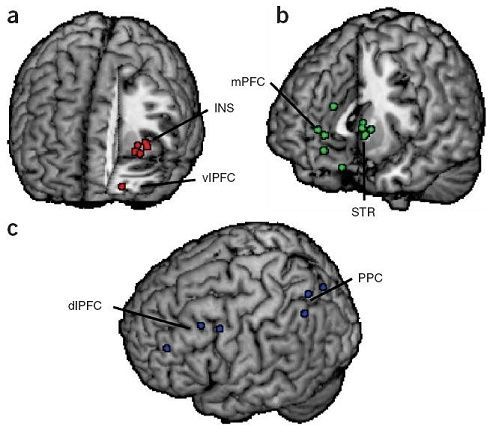- Revenue Cycle Management
- COVID-19
- Reimbursement
- Diabetes Awareness Month
- Risk Management
- Patient Retention
- Staffing
- Medical Economics® 100th Anniversary
- Coding and documentation
- Business of Endocrinology
- Telehealth
- Physicians Financial News
- Cybersecurity
- Cardiovascular Clinical Consult
- Locum Tenens, brought to you by LocumLife®
- Weight Management
- Business of Women's Health
- Practice Efficiency
- Finance and Wealth
- EHRs
- Remote Patient Monitoring
- Sponsored Webinars
- Medical Technology
- Billing and collections
- Acute Pain Management
- Exclusive Content
- Value-based Care
- Business of Pediatrics
- Concierge Medicine 2.0 by Castle Connolly Private Health Partners
- Practice Growth
- Concierge Medicine
- Business of Cardiology
- Implementing the Topcon Ocular Telehealth Platform
- Malpractice
- Influenza
- Sexual Health
- Chronic Conditions
- Technology
- Legal and Policy
- Money
- Opinion
- Vaccines
- Practice Management
- Patient Relations
- Careers
The Delay That Satisfies: How to Be Happy by Not Buying Things You Don't Need
The choice between impulse buying and delayed gratification can have a major impact on our finances. It turns out there's a neurological explanation for this.

Buying what we desire can make certain areas in our brains burn brightly. But, if we delay the purchase, this state of mind can change.
Lately, I’ve had two experiences that seem almost bizarre. I was attempting to buy decorative objects—high-end items from brick-and-mortar businesses that advertise on the Internet. With my initial rush of excitement upon seeing their photos, I even imagined what the pieces would look like in our home. But, because I couldn’t examine them in person, instead of purchasing outright, I asked the sellers questions. The merchants were slow to respond and therein lies my story.
My own reaction to this was, I thought, curious. In the intervening time between my wild enthusiasm about making the objects mine and when the sellers got back to me (days and days and days), I lost interest in the objects altogether. I feel I would have been happy if I purchased them outright, but I couldn’t because I had concerns that needed to be answered. As time went on and the dealer apparently thought I would hold my desire endlessly, I found I was content and didn’t need the pieces that I thought I did. This was in spite of the fact that I initially believed they would enhance my well-being. In the end, I was happy not purchasing what I supposed I wanted.
What in the world happened here?
My turn-about, I believe, is consistent with a Neuroeconomic phenomenon known as “temporal discounting.” It relates to decisions made under uncertainty. And, my decisions were certainly made under those conditions. Here is the neuroscience explanation:
When we desire something and it is available immediately, it is especially attractive. But, if we have to wait, it is less so. In cases where we have to wait, there has to be a payback for delaying the reward. In my case, had the same items been offered at a large discount after the 10- or 20-day interval it took to answer my questions, I might have been persuaded positively. Then, I may have purchased in spite of the wait. But, that didn’t happen. The dealer wanted the same price in spite of the fact that I had to postpone my buying decision. By the time I had enough information, my enthusiasm was all but dead.

Brain regions implicated in decision making under uncertainty. Shown are locations of activation from selected functional magnetic resonance imaging studies of decision making under uncertainty. (a) Aversive stimuli, whether decision options that involve increased risk or punishments themselves, have frequently been shown to activate insular cortex (INS)33,52,53,58 and ventrolateral prefrontal cortex (vlPFC)61. (b) Unexpected rewards modulate activation of the striatum (STR)43,46,53,59,76, particularly its ventral aspect, as well as the medial prefrontal cortex (mPFC)43,53,61,76. (c) Executive control processes required for evaluation of uncertain choice options are supported by dorsolateral prefrontal cortex (dlPFC)52,58 and posterior parietal cortex (PPC)33,34. Each circle indicates an activation focus from a single study. All locations are shown in the left hemisphere for ease of visualization.
From “Risky business: the neuroeconomics of decision making under uncertainty.”
Michael L Platt and Scott A HuettelNat Neurosci. 2008 Apr; 11(4): 398—403.
Published online 2008 Mar 26. doi: 10.1038/nn2062
In practical Neuroeconomic terms, temporal discounting relates to many areas of human decision making. For example, this is why it is necessary to give savers an incentive. Basically, they would rather spend their money than put it away for a rainy day. But, if they gain interest on their cash in the bank or in dividend producing blue chip stocks, they get reimbursed for their patience. The brain processes that produce temporal discounting are satisfied.
Of course, savers are putting away money for when they will need it—a very practical thing to do. On the other hand, I was buying something I desired but really didn’t need (nor does anyone else). But, in spite of this I still felt that pull of the immediate over the delayed.
When I couldn’t satisfy my desire immediately, I began to justify my diminished longing, pointing out to myself that paying for the items and having them shipped would be no easy task. Also, I rationalized that there is always a chance of damage during shipping and that could be a nightmare in itself in terms of time and energy spent to rectify the problem.
Of course, the latter line of thinking is cognitive dissonance. It is a method of dealing with conflicting emotions. When it was difficult to secure what I wanted, I began not only to temporally discount it but also to justify my own waning interest.
So, when wanting to buy items that aren’t needed, a delay in the purchase can help. Temporal discounting kicks in. It provides a mechanism to be satisfied even when a purchase is not made and proves that there can be happiness in not buying what is not needed. Certainly, it happened to me.
